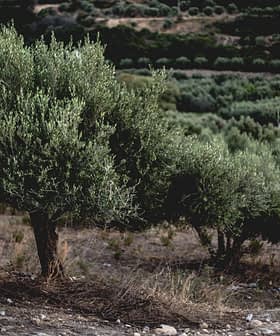Demonstrators at COP26 Demand More Action from Leaders on Climate
Protestors rallied in Glasgow and around the world to express their dismay at the process and results of COP26.
In the wake of the COP26 climate summit held in Glasgow, thousands of protesters rallied in the city streets demanding world leaders to commit to more measures to tackle the climate crisis the planet is facing.
According to the organizers of the protest, more than 100,000 demonstrators, mostly young people, marched through the city despite the rainy weather.
We are taking to the streets across the world this weekend to push governments from climate inaction to climate justice
“Droughts and floods have left nothing behind for the people,” climate activist Vanessa Nakate told the crowd in Glasgow. “Tens of thousands of people are suffering catastrophic levels of food insecurity.”
See Also:Climate Change Coverage“We must demand that our leaders treat the climate crisis like a crisis,” she added. “We remain hopeful. Another world is possible.”
More than 250 similar events were staged in countries around the world, including Belgium, the Netherlands, South Korea, Indonesia, Pakistan and France.
“We are taking to the streets across the world this weekend to push governments from climate inaction to climate justice,” said Asad Rehman, a spokesperson for the COP Coalition.
The protesters in Glasgow were joined by hundreds of representatives of various global social groups, including farmers, indigenous people, academics and environmental non-governmental organizations, who left the COP26 summit before completion as a declaration of disapproval.
“COP26 is a performance,” Ta’Kaiya Blaney, an indigenous activist from the Tla A’min Nation near British Columbia, told the audience before leaving the meeting. “It is an illusion constructed to save the capitalist economy rooted in resource extraction and colonialism.”
Meanwhile, after two weeks of negotiations in COP26, almost 200 nations agreed on a climate deal to reduce emissions in order to adapt to the impacts of climate change.
The deal stipulates that big polluters have to present strong emissions-cutting plans by the end of 2022 and urges the rich nations of the world to “at least double their collective provision of climate finance for adaptation to developing countries.”
The deal also contains provisions to “phase down” the use of unabated coal, the main single source of CO2 emissions, instead of completely eliminating it as originally intended, causing resentment from some of the participants.
“We do not need to phase down, but to phase out,” said Simonetta Sommaruga, Switzerland’s representative. “We are disappointed both about the process and the last-minute change. This will not bring us closer to 1.5 ºC [the accepted global temperature increase] but will make it more difficult to reach.”








